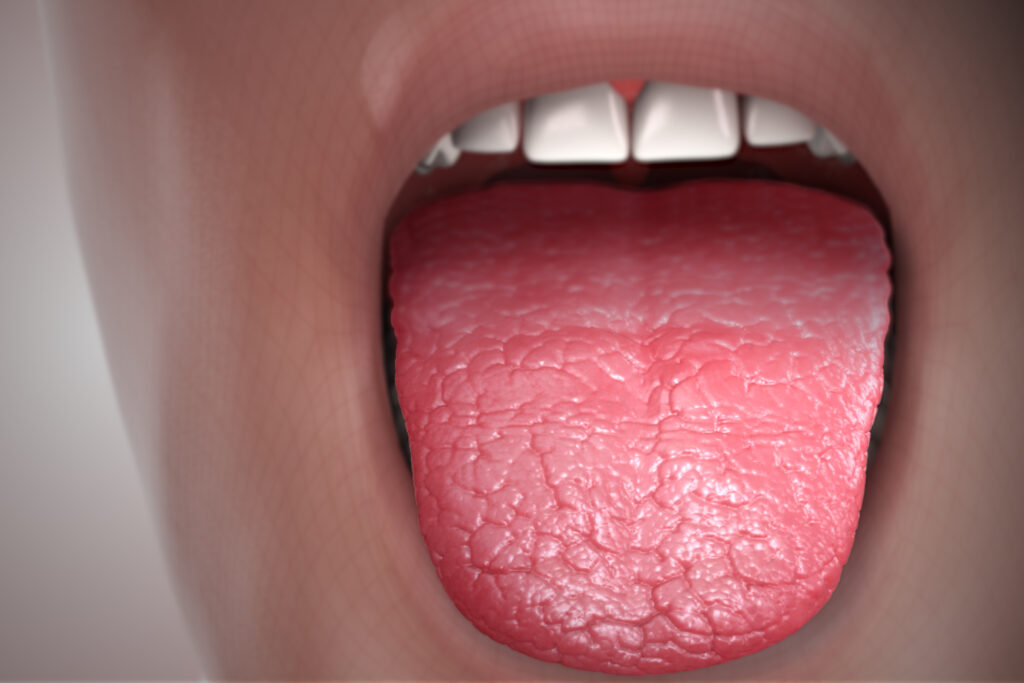Understanding Fish Oil and Dry Mouth
Fish oil has long been a go-to supplement for those keen on reaping the benefits of its rich omega-3 fatty acid content. The market for these supplements hit a whopping $5.58 billion globally in 2020, revealing a robust demand among health-conscious individuals. Yet, every boon comes with its share of banes; in the case of fish oil, one of those banes seems to be dry mouth.
Dry mouth, or xerostomia, is a discomforting condition where the mouth feels parched due to reduced saliva flow or changes in saliva composition. It’s like having a party in the mouth, but the water tap is running dry.
Some quarters have pointed fingers at fish oil supplements as a potential dry spell caster, mainly when consumed in large doses. Excess intake of these supplements could trigger side effects like diarrhea, belching, and dry mouth.
“The ripple effect of dry mouth goes beyond a mere tickle in the throat. It’s a party pooper that could lead to other unwelcome guests like difficulty in speaking and eating, not to mention dental issues.”
It seems like the fatty acids in fish oil could irritate the cells of your intestinal tract when taken excessively, setting off a chain reaction that ends with a dry mouth. However, not everyone’s party is ruined. The severity and occurrence of dry mouth might depend on how much fish oil one consumes. It’s fine between enjoying the omega-3-laden fest and ending up with a dry dance floor.
But how does one know where the line is? It’s a question that nudges at the edge of the consciousness for those who have made fish oil a dietary staple. Understanding the link between fish oil and dry mouth is akin to navigating through a nutritional maze, with every turn unveiling new insights, some reassuring and others cautionary.
“Navigating the waters of fish oil supplementation is akin to a voyage, with dry mouth being one of the potential storms on the horizon.”
In the grand scheme, the connection between fish oil and dry mouth is a small cog in the vast machinery of nutritional science. Yet, for the individual standing at the supplement aisle, it’s a question that warrants a closer look. It’s about making informed choices, about knowing the terrain before setting off on the health trail.

Demographics: Who’s Most at Risk?
When it comes to nutritional supplements, one size doesn’t fit all. The effects can vary widely from person to person. Certain demographics bear more brunt than others in fish oil and dry mouth.
A specific study highlighted a pattern where dry mouth was more common among females aged 60 and above taking fish oil for 1 to 2 years. It’s like a selective guest list for an event one would rather not attend.
- Age
- Gender
- Duration of fish oil consumption
These factors form the trinity that could dictate the likelihood of experiencing dry mouth. The plot thickens with the gender and age-specific trends, hinting at hormonal or physiological underpinnings. The longer duration of consumption also raises the flag of caution for long-term users of fish oil supplements.
It’s almost akin to a tale of nutritional roulette, where the odds are stacked based on your age, gender, and how long you’ve been on the fish oil bandwagon. The narrative seems to suggest a more cautious approach for certain demographics. Maybe it’s about adjusting the dose or seeking alternatives; the script is yet to be written.
“The intersection of age, gender, and fish oil consumption sketches a narrative, with dry mouth being a potential subplot for some.”
Yet, amidst the statistical figures and demographic trends lies the individual narrative of those who find themselves on the dry side of the mouth. The numbers translate to authentic experiences, days of coping with the discomfort, and seeking solutions. It’s about navigating the gray area between fish oil’s benefits and dry mouth’s discomfort.
The demographic lens offers a glimpse into the complex interplay of factors that come into play. It’s not a clear-cut scene but a nuanced picture where individual circumstances and body responses paint a diverse landscape. The story of fish oil and dry mouth is far from black and white; it’s a spectrum of experiences that warrant a closer look.
The exploration into who’s most at risk is akin to peeling layers of an onion, with each layer revealing more about the intricate relationship between fish oil and dry mouth. As the layers peel away, the narrative morphs, offering multiple perspectives that enrich the understanding this health conundrum.

Implications of Dry Mouth
Dry mouth is not just a trivial matter. It’s a silent discomfort that could echo through various aspects of one’s life. Imagine being at a social gathering; the conversation flows, but the dryness in the mouth turns every word into a struggle. It’s a subtle yet pervasive issue that could damper the simple joys of social interaction.
Besides being a conversation dampener, dry mouth could be the precursor to other oral health woes. It’s like the domino that sets off a chain reaction, leading to dental decay, gum disease, and other oral infections. The absence of adequate saliva turns the mouth into a playground for bacteria, and that’s a party no one wants to host.
Then, there’s the ripple effect on the nutritional front. When every bite becomes a chore due to the dryness, it could reduce food intake, impacting one’s nutritional status. It’s a scenario where the remedy (fish oil supplements) for boosting health presents a hurdle in a different guise.
“Dry mouth is like an uninvited guest, subtly impacting the dialogues, the dinners, and the daily smiles shared over a healthy conversation.”
The narrative of dry mouth also has a silent character – the emotional distress that comes with it. The constant discomfort, the potential embarrassment in social settings, and the endless search for remedies are subplot that runs through the lives of those dealing with dry mouth. It’s a narrative that underscores the importance of understanding the side effects of dietary supplements like fish oil.
The story of dry mouth isn’t confined to the oral cavity; it resonates through various facets of an individual’s life. It’s a tale of discomfort, coping strategies, and the relentless quest for solutions. It’s a chapter in the larger narrative of one’s health journey, intertwined with choices around dietary supplements like fish oil.
The discourse around dry mouth goes beyond just fish oil. It’s a cue to explore the broader narrative of dietary supplements and their impact on the body. It’s about piecing together the puzzle, one discomfort at a time, to arrive at a more nuanced understanding of the health terrain.
Combatting Dry Mouth: Possible Solutions
Now, here’s where the plot takes an intriguing twist. While fish oil might have a dry side, it also holds a quenching promise. Some studies suggest that fish oil could increase the production of tears and saliva, which are crucial for keeping the mouth moist. It’s like a character in a story revealing a different facet, adding a new dimension to the narrative.
So, how does one harness the moist side of fish oil while keeping the dry spell at bay? It could be about finding the right balance. Like in a well-tuned orchestra, every element has its place and rhythm. Too much of one can drown the melody of the other. It’s about orchestrating the right balance between the intake of fish oil and maintaining oral moisture.
It’s a scenario that invites a dialogue with healthcare providers. Discussing the dosage, exploring alternative sources of omega-3 fatty acids, or even considering other forms of supplementation. It’s about crafting a personalized narrative that aligns with one’s health goals while mitigating the risk of dry mouth.
“In the realm of fish oil and dry mouth, finding the right balance is like tuning the strings of wellness to play a harmonious health melody.”
One could also venture into the realm of lifestyle modifications. Incorporating hydrating foods, sipping water throughout the day, or even using saliva substitutes could be part of the script for combating dry mouth. It’s about tweaking the lifestyle narrative to usher more moisture into the daily script.
This chapter in the fish oil and dry mouth saga also opens up a dialogue about informed choices. It’s about being in tune with one’s body, understanding the cues, and making choices that foster well-being. It’s a narrative of empowerment, of taking charge of one’s health story.
The narrative of combating dry mouth is a testament to the dynamism inherent in the health and wellness domain. It’s a realm where new insights continually shape the discourse, where each crafts their unique health narrative. As the understanding of fish oil and dry mouth evolves, so does the script for managing this condition.
The Omega-3 Paradox: Dry Mouth in Sjögren’s Syndrome Patients
In the quest to decode the link between fish oil and dry mouth, a specific study explored the impact of omega-3 supplementation on dry mouth in individuals with Sjögren’s Syndrome. The results, however, didn’t unfold as one might expect. The study found no significant difference in salivary secretion between the group receiving omega-3 and the control group.
It’s a plot twist in the narrative that nudges at the complex relationship between fish oil and dry mouth. It’s like a scene in a story where the expected outcome takes a backseat, allowing for a deeper exploration of the narrative.
“The tale of fish oil, omega-3, and dry mouth unveils a narrative where not every chapter unfolds as anticipated, especially in the chronicles of Sjögren’s Syndrome.”
The tale of Sjögren’s Syndrome patients paints a picture of how individual medical conditions could play a pivotal role in the fish oil and dry mouth narrative. It’s a scene that underscores the importance of a personalized approach to supplementation, where one size doesn’t fit all.
The findings from the study don’t just add a layer of complexity to the narrative; they invite a deeper exploration into the role of omega-3 fatty acids in the body. It’s a cue to delve deeper, explore beyond the surface, and seek a more nuanced understanding of fish oil and dry mouth.
| Aspect | Omega-3 Group | Control Group |
|---|---|---|
| Unstimulated Saliva Secretion | No significant difference | No significant difference |
| Stimulated Saliva Secretion | No significant difference | No significant difference |
The table above encapsulates the study’s findings, showing parity between the omega-3 and control groups. It’s a narrative that hints at the need for more research, for more pages to be added to the story of fish oil and dry mouth.
The Sjögren’s Syndrome chapter offers a glimpse into the myriad factors that could influence the fish oil and dry mouth narrative. It’s a tale far from over, with many more chapters waiting to be explored.
A Broader Perspective: Other Side Effects of Fish Oil
The voyage into the world of fish oil and dry mouth doesn’t stop here. It’s a glimpse into the broader narrative of fish oil supplementation, which carries a suitcase of other potential side effects. Apart from dry mouth, the list extends to diarrhea, heartburn, and changes in taste perception.
The journey unveils a landscape where the benefits of fish oil dance alongside the potential downsides. It’s a nuanced narrative that beckons a deeper understanding, a more informed approach to supplementation.
The discourse around fish oil isn’t about painting a picture of fear; it’s about illuminating the path for those navigating the supplementation journey. It’s about offering a lens to view the broader picture to weigh the pros and cons before embarking on the fish oil voyage.
“The narrative of fish oil is a blend of wellness tunes and cautionary tales, with each side effect being a note in the symphony of supplementation.”
The narrative of other side effects is a reminder of the multi-faceted nature of dietary supplements. It’s a scene that underscores the importance of a balanced view, not getting swept away by the wave of benefits alone.
As the curtain falls on the narrative of fish oil and dry mouth, the stage is set for a more informed dialogue around supplementation. It’s a scene that invites individuals to be the authors of their health narratives, to pen down a script that resonates with their wellness goals.
The discourse around fish oil and dry mouth is not just a standalone story; it’s a chapter in the broader narrative of health and wellness. It’s a cue to delve deeper, to continue exploring the vast landscape of nutritional supplements and their impact on the body.
Conclusion
The narrative of fish oil and dry mouth unfolds like a tale of twists and turns. From the initial curtain rise on the booming market of fish oil supplements to the spotlight on dry mouth, the narrative has traversed through demographic trends, individual experiences, and the complex interplay between fish oil and dry mouth.
“As the tale of fish oil and dry mouth unfolds, it leaves behind a trail of insights, beckoning a mindful voyage in the sea of supplementation.”
The journey unveils a landscape where informed choices become the protagonist. It’s about fostering a dialogue, delving into the nuances, and scripting a narrative that aligns with one’s wellness goals.
As the curtain falls on this narrative, the stage is set for a more informed, nuanced, and personalized approach to fish oil supplementation. It’s about closing the chapter on dry mouth, hoping to scrip a more comfortable, moist narrative in the coming days.
Sources
- Singh, M., Stark, P. C., Palmer, C. A., Gilbard, J. P., & Papas, A. S. (2010). Effect of omega‐3 and vitamin E supplementation on dry mouth in patients with Sjögren’s syndrome. Special Care in Dentistry, 30(6), 225-229.
- Ferguson, M. M. (2002). The persistent dry mouth. New Zealand Family Physician, 29(4), 259-266.
- Al Hamad, A., Lodi, G., Porter, S., Fedele, S., & Mercadante, V. (2019). Interventions for dry mouth and hyposalivation in Sjögren’s syndrome: A systematic review and meta‐analysis. Oral diseases, 25(4), 1027-1047.
The information on this site is not intended to replace a one-on-one relationship with a qualified health care professional and is not intended as medical advice. This information is not a substitute for professional medical advice. You should always consult your healthcare provider if you have questions regarding your medical condition or treatment.
While the information on this site is aimed at helping people make informed decisions about their health, it's important to consult your doctor or other qualified health care provider if you have any questions about any medical condition. Before making any changes in your health care plan or treatment, always speak with your doctor.
Never delay or disregard seeking professional medical advice from your doctor or other qualified health care provider because of something you have read on this site.
All of the content on this site is presented for general informational purposes only and should not be construed as medical advice.







